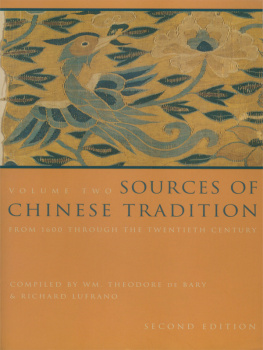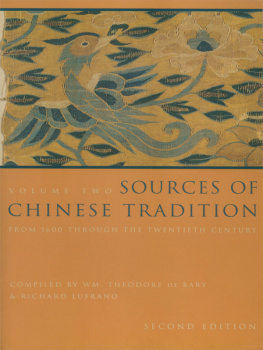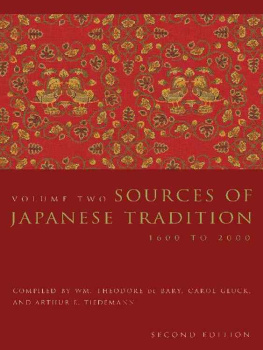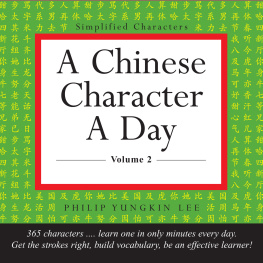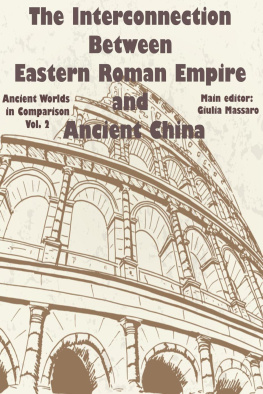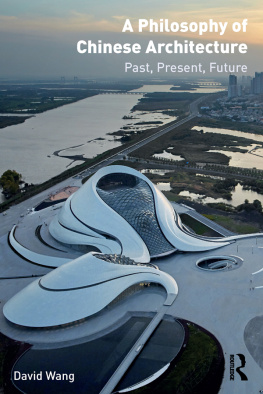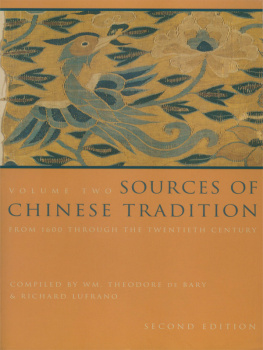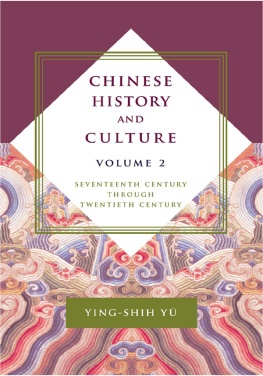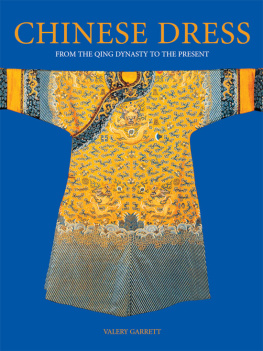Sources of Chinese Tradition
SECOND EDITION
VOLUME II
INTRODUCTION TO ASIAN CIVILIZATIONS
Introduction to Asian Civilizations
WM. THEODORE DE BARY, GENERAL EDITOR
Sources of Japanese Tradition
(1958)
Sources of Chinese Tradition
(1960, rev. 1999)
Sources of Indian Tradition
(1958, rev. 1988)
Sources of Korean Tradition
(1997)
Columbia University Press
Publishers Since 1893
New York Chichester, West Sussex
cup.columbia.edu
Copyright 2000 Columbia University Press
All rights reserved
E-ISBN 978-0-231-51799-7
Library of Congress Cataloging-in-Publication Data
de Bary, William Theodore, 1919
Sources of Chinese tradition, vol. 2 / compiled by Wm. Theodore de Bary and Richard Lufrano ; with the collaboration of Wing-tsit Chan... [et al.].2d ed.
p. cm.(Introduction to Asian civilizations)
Includes bibliographical references and index.
ISBN 0231109385 (vol. 1 cloth)ISBN 0231109393 (vol. 1 paper)
ISBN 023111270X (vol. 2 cloth)ISBN 0231112718 (vol. 2 paper)
1. ChinaCivilizationSources. I. Lufrano, Richard. II. Chan, Wing-tsit, 19011994. III. Title. IV. Series.
DS721.D37 1999
951dc21 9821762
A Columbia University Press E-book.
CUP would be pleased to hear about your reading experience with this e-book at .
List of permissions
Azure (Sky Blue). Chinese Sociology and Anthropology (Winter 199192). Reprinted by permission from M.E. Sharpe, Inc., Armonk, NY 10504.
Benton, Gregor, and Alan Hunter, eds. Wild Lily, Prairie Fire, Chinas Road to Democracy. Copyright 1995 by Princeton University Press. Reprinted by permission of Princeton University Press.
Bringing Down the Great Wall by Fang Lizhi. Copyright 1991 by Fang Lizhi. Reprinted by permission of Alfred A. Knopf Inc.
Building Socialist Spiritual Civilization. Beijing Review, no. 10 (March 9, 1981): 1617.
Chan, Anita, Stanley Rosen, and Jonathan Unger, eds. On Socialist Democracy and the Chinese Legal System. Reprinted by permission from M.E. Sharpe, Inc., Armonk, NY 10504.
Chang, Carsun. The Development of Neo-Confucianism. NY: Bookman, 1962.
The Chinese Debate on the New Authoritarianism. Chinese Sociology and Anthropology (Winter 199091 and Spring 1991). Reprinted by permission from M.E. Sharpe, Inc., Armonk, NY 10504.
Compton, Boyd. Maos China: Party Reform Documents. Copyright 1952, University of Washington Press. Reprinted with permission of publisher.
Communique of the Third Party Plenary Session of the 11th Central Committee of the Communist Party of China. Beijing Review, no. 52 (December 29, 1978): 616.
The Deep Structure of Stagnation and Surveillance, by Sun Longji. Translated by Fok Shui Che in Seeds of Fire: Chinese Voices of Conscience, edited by Geremie Barm and John Minford. Copyright 1986 by Geremie Barm and John Minford. Reprinted by permission of Hill and Wang, a division of Farrar, Straus & Giroux, Inc.
Engendering China: Women, Culture and the State, edited by Christina Gilmartin, Gail Hershatter, Lisa Rofel, and Tyrene White. Cambridge, Mass.: Harvard University Press. Copyright 1994 by the President and Fellows of Harvard College. Reprinted by permission of the publisher.
Fan, K. H. The Chinese Cultural Revolution: Selected Documents. Copyright 1968 by K. H. Fan. Reprinted by permission of Monthly Review Foundation.
Feng yu-lan. Selected Philosophical Writings. Beijing: Foreign Languages Press, 1991.
The Fifth Modernization, from The Courage to Stand Alone by Wei Jingsheng. Translated by Kristina M. Torgeson. Translation copyright 1997 by Wei Jingsheng. Used by permission of Viking Penguin, a division of Penguin Books USA Inc.
Gao Yuan. Born Red: A Chronicle of the Cultural Revolution. Copyright 1987 by the Board of Trustees of the Leland Stanford Junior University.
Hayhoe, Ruth, and Yongling Lu, Ma Xiangbo and the Mind of Modern China. Reprinted by permission from M.E. Sharpe, Inc., Armonk, NY 10504.
A Higher Kind of Loyalty by Liu Binyan. English translation copyright 1990 by Random House, Inc. Reprinted by permission of Pantheon Books, a division of Random House, Inc.
How China Can Become Prosperous. Bachman, David and Dali L. Yang, translators and editors, Yan Jiaqi and Chinas Struggle for Democracy. Reprinted by permission from M. E. Sharpe, Inc., Armonk, NY 10504.
The Hundred Flowers Campaign and the Chinese Intellectuals, edited by Roderick MacFarquhar. Copyright 1960 by Roderick MacFarquhar. Reproduced with permission of Greenwood Publishing Group, Inc., Westport, CT.
I Myself Am a Woman by Ding Ling. Copyright 1989 by Beacon Press. Reprinted by permission of Beacon Press, Boston.
MacFarquhar, Roderick, Timothy Cheek, and Eugene Wu. The Secret Speeches of Chairman Mao: From the Hundred Flowers to the Great Leap Forward. Cambridge: Council on East Asian Studies, Harvard University, 1989. Used with permission.
Mao Zedong. Report From Xunwu. Translated and with an introduction and notes by Roger R. Thompson. Copyright 1990 by the Board of Trustees of the Leland Stanford Junior University.
Merwin, Wallace C. Documents of the Three-Self Movement. NY: National Council of the Churches of Christ in the USA, Division of Foreign Missions, Far Eastern Office, 1963. Used with permission.
The Political Thought of Mao Tse-tung by Stuart Schram. New York: Praeger, 1972. Reprinted by permission of the author.
Red Flower of China by Zhai Zhenhua. New York: Soho Press Inc., 1992. Reprinted by permission of the publisher.
Selden, Mark, ed. The Peoples Republic of China: A Documentary History of Revolutionary Change. Copyright 1979 by Mark Selden. Reprinted by permission of Monthly Review Foundation.
Several Questions in Strengthening and Perfecting the Job Responsibility Systems for Agricultural Production. Issues and Studies (May 1981). Reprinted by permission.
The Ugly Chinaman, by Bo Yang, from Seeds of Fire: Chinese Voices of Conscience edited by Geremie Barm and John Minford. Copyright 1986 by Geremie Barm and John Minford. Reprinted by permission of Hill and Wang, a division of Farrar, Straus & Giroux, Inc.
Yu Qiuli. The Relationship Between Politics and Economics. Issues and Studies (January 1980). Reprinted by permission.
Zhou Enlai. Report on the Work of Government. Beijing Review (January 24, 1975): 2125.
This volume is dedicated to Irene Bloom in appreciation of her outstanding contributions to the study and teaching of Chinese thought and to the development of Asian Studies.
The names of contributors are indicated in the table of contents alongside the sections or selections that they are responsible for. At the end of each selection the sources of translations are rendered as concisely as possible; full bibliographical data can be obtained from the list of sources at the end of the book. Unless otherwise indicated, the author of the text is the writer whose name precedes the selection; the initials following each selection are those of the translator, as indicated in the table of contents. Where excerpts have been taken from existing translations, they have sometimes been adapted or edited in the interests of uniformity with the book as a whole.
In translating Chinese terms there is often no single equivalent in English for pivotal words that have multiple meanings in the original. Simply to transliterate the original term would be an easy way to avoid having to choose among alternatives, but it would not be a solution for the great majority of readers who are unfamiliar with Chinese. Consequently, we have adopted a standard rendering and used it wherever possible but have allowed for variants (followed by the romanized term) to be substituted when necessary. At the end of volume 1 of
Next page
